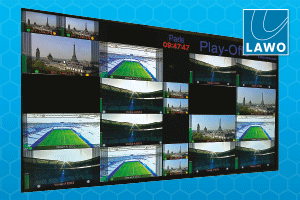As future generations join millennials in buying power and influence, a desire for experiences is only likely to increase.
As consumers’ purchasing behaviour keeps evolving and their attention span keeps reducing, digital and virtual reality (VR) experiences have emerged as powerful tools in shaping brand advocacy. With a growing emphasis on experiential purchases, especially among millennials who prioritise experiences over products, these technological advancements offer brands a unique opportunity to connect with their audience. This shift is profoundly influenced by the experience economy, a concept introduced in the late 1990s which underscores the significance of customer-centric experiences in gaining a competitive edge.
Digital Transformation in Branding
The digital revolution has fundamentally altered branding strategies. It’s no longer just about the product or service; the broader impact lies in creating experiences that resonate with consumers on a deeper level. Studies, including those by the World Economic Forum, have highlighted that organisations must focus on humancentric experiences to thrive. This is particularly relevant considering that millennials, who make up a significant portion of the global workforce, heavily influence the experience economy. Remarkably, 78% of millennials value experiential purchases more highly than material ones. As future generations join millennials in buying power and influence, a desire for experiences is only likely to increase. As the global VR advertising market is projected to achieve revenue of $166.7m in 2023, brands have a unique opportunity to leverage digital platforms to create immersive and memorable experiences.
Shaping Consumer Preferences
The pandemic significantly altered social interactions and tangible experiences, leading to a heightened demand for activities that have interaction at the centre. Fear of missing out, aka FOMO, in people worldwide, caused by social pressure, exclusivity and limited-time opportunities, also adds to the expansion in experiential appetite. For example, the leisure and tourism industries are now more focused on selling experiences rather than just services. Their appeal and amenities are being redesigned to cater to the modern consumer. In the Middle East, environmental conditions and cultural preferences play a significant role in consumer behaviour. Interestingly, high internet penetration in the region is also an experience economy driver, with mobile internet penetration expected to reach 8.8bn people by 2025.
VR in Brand Advocacy
VR offers a unique platform for immersive and interactive experiences that redefine consumer engagement. Far surpassing traditional marketing methods, VR allows consumers to become active participants in a brand’s narrative, deepening their connection and leaving a lasting impact.
These VR experiences transcend mere entertainment, serving as powerful engagement tools. Harnessing VR, brands can craft visually stunning, interactive experiences that not only amplify their message but also deeply engage customers. Through participatory experiential marketing, customers immerse themselves in the brand’s world, making it stand out in a saturated market. These campaigns encourage brand advocacy, as customers are likely to share their engaging experiences, extending the brand’s reach. By leveraging VR, brands can enhance storytelling, create memorable interactions and position themselves as leaders in a technology-driven branding era.















































































